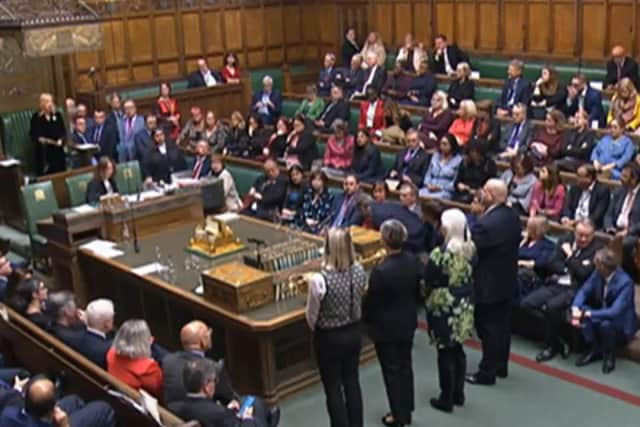Confidence vote: Who can trigger a vote of no confidence in the government? What needs to happen
SNP Westminster leader Ian Blackford has written to Labour leader Sir Keir Starmer, urging him to push for a vote of no confidence in the Tories, which could lead to a general election.
Who can trigger a vote of no confidence in the Government?
While any MP can propose a no-confidence motion, there's no guarantee their request will be granted.
Advertisement
Hide AdAdvertisement
Hide Ad

As the leader of the opposition in the House of Commons, Sir Keir Starmer is the only MP who can submit the formal vote of no confidence motion and convention means the government must provide time for a debate. Other opposition parties normally express calls for such a vote to the leader of the Opposition rather than filing a motion themselves.
A motion can be raised over a certain issue – however the most common motion is simply: “this House has no confidence in Her Majesty’s Government”
How does a motion of no confidence in the government pass?
The motion of no confidence in the government only needs a simple majority to pass in a first past the post style vote- one more MP needs to vote in favour for the motion than the number voting against.
If the motion fails then government will resume as normal.
Does a no confidence vote in the government trigger a general election?
One of the most common results of a vote of no confidence in the government is a general election. Normally, if a government loses such a vote Parliament is dissolved and a general election is called.
However, this is not the only possible outcome of a confidence vote. In theory, King Charles III could invite somebody else to form a government sparing a general election to offer the role of Prime Minister to someone who could win a vote of confidence in the House of Commons.
This hasn’t happened in almost 100 years, when King George V asked Labour's Ramsay MacDonald to form a government.
The monarch could decline a general election and rather ask another member of parliament to form a government under the Lascelles principles (devised by Sir Alan Lascelles) if the existing Parliament was still capable of doing its job. One of the main reasons to not grant an election is if the monarch believed a general election would be bad for the economy
What happens if a government loses a confidence vote?
If a Government loses a confidence vote in the House of Commons, the Prime Minister will be expected either to resign, or to request a dissolution of Parliament from the Queen. However, this is convention rather than law – but it is the norm as it is unlikely that a leader who loses a confidence motion would be able to command a government in the future.
Advertisement
Hide AdAdvertisement
Hide AdThe only occasion since WW2 in which a government has lost a confidence vote was in 1979, when Labour prime minister James Callaghan's minority government fell and was replaced by Margaret Thatcher's Conservatives